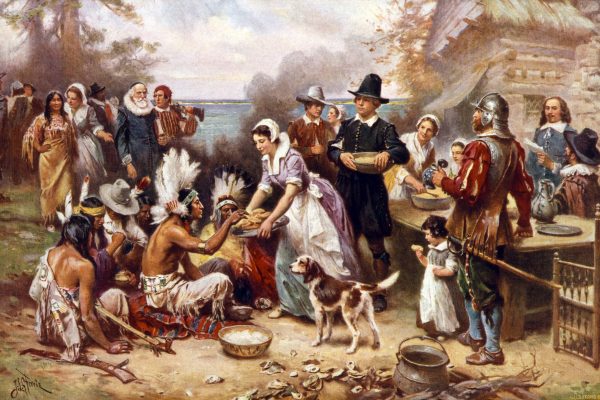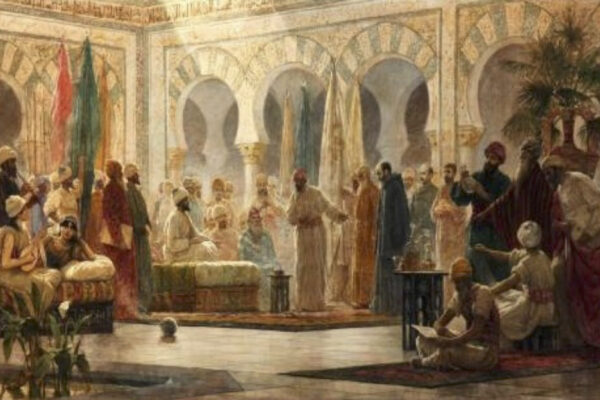Did you now that some of the earliest Muslim Canadians were from the Ottoman Empire?
Did you now that some of the earliest Muslim Canadians were from the Ottoman Empire?
Many of the earliest Muslims in Canada were immigrants from the Ottoman Empire, but the two states are not known have any significant diplomatic relations between them. The Ottoman dynasty had already ruled for more than 500 years before Canada was created in 1867, and they preferred to deal directly with Britain, Canada’s “mother country”. This continued through the First World War—but with an interesting plot twist at the end.
In 1922, the dust of the First World War was still settling down. British, French, and Greek troops still held Constantinople (Istanbul), the capital of the defeated Ottoman Empire, and virtually held Sultan Mehmed VI hostage. They were keen on holding this strategic city as a bargaining chip for the complex negotiations that they were involved in with different empires and minority groups in the aftermath of the war.
But elsewhere in Anatolia, Ottoman soldiers were uniting under the leadership of the soon-to-be-famous Mustafa Kemal Atatürk, eager to reclaim their country from its foreign occupiers. The Kemalists, as they were called, had declared a government that was independent of the sultan, recognizing that Mehmed VI was powerless in Constantinople. Kemal and his followers were determined to reunite the Anatolia (i.e. the Turkish peninsula) on the basis of Turkish nationalism, and they were able to exert enough military pressure on the Allies for them to be invited to the London Conference in 1921 in hopes that the two sides could come to some sort of an agreement. It didn’t happen.
The Kemalists captured town after town, slowly bringing all of Greek-occupied Anatolia under their control. By September of 1922, the Greeks were evacuating and Kemal was closing in on his ultimate goal: Constantinople. The famous writer Ernest Hemingway was The Toronto Star’s war correspondent on the ground at the time, covering these developments; he stood in awe at the retreat of 1.5 million Greek soldiers and settlers and was reminded by his Croatian landlady of the Turkish proverb that “it is not only the fault of the axe but of the tree as well”.
Alarm bells were going off in London, Paris, and elsewhere—including Ottawa. Atatürk said that he preferred to negotiate with the occupying forces rather than fight them, but also insisted that he could not wait forever. The British government pointed fingers at their Allies for being absent in the crisis that they had all helped to create, but ultimately they decided to ignore Atatürk’s warning. They believed they could rely on the dominions of the British Empire, such as Canada, to fight on their behalf, as Canada had enthusiastically done during the First World War. They were wrong.
Just four years after the end of the deadliest war in human history (up until that point), the public in Britain, Canada, and elsewhere in the empire was horrified to learn through the newspapers that they may be asked to go to war again to defend the British position in faraway Constantinople. The British government, led by arch-imperialists like Winston Churchill, was unaware of just how deeply this feeling was running throughout their empire. Shortly before midnight on September 15, 1922, a telegram was sent to Ottawa and the capitals of the other dominions, informing them of Britain’s decision to defend Constantinople and demanding military support.
Some of the dominions responded favourably, including Australia, New Zealand, and Newfoundland (which at the time had not yet joined the rest of Canada). South Africa was undecided. But it was Canada’s hesitation that hurt the British the most. On September 16, Churchill and another senior British politician sent out a press release warning the people of Britain—and dominions such as Canada—of the inspiration Muslims across the world might gain if Kemal’s efforts to reunite Turkey and oust the Allied occupiers were successful. The release was published in Canada’s major newspapers and elsewhere across the empire.
The move backfired. The horrors of the First World War were still fresh in the minds of the British and the Canadians. Even worse, the press release was published before Canada’s PM William Lyon Mackenzie King and other leaders had a chance to think of the implications of the telegram they had just received, and they were offended by the thought that leaders in Britain were trying to rush them into another war.
King had only become prime minister in 1921 (and would eventually be the longest-serving PM in Canada’s history) but the Chanak Crisis, as this came to be known, served as his first foreign policy test and he immediately indicated that it was time for things to change. Instead of immediately pledging to send troops, as was expected of him in London, King decided to not make any promises but insist that this was a question that parliament (i.e. the elected representatives of the Canadian people) had to decide. He faced quite a bit of criticism for this act of disloyalty to Britain, but he remained firm; by the time parliament was able to discuss the issue, the crisis had ended, as Britain and the Allies decided to agree to Kemal’s terms and evacuate themselves from Constantinople.
For the Ottoman Empire, Canada’s assertiveness in the Chanak Crisis was the nail in the coffin for a century that had ruled Anatolia and much of Eastern Europe and the Middle East for the better part of six centuries. Kemal was not a leader of the Ottoman Empire, but of the Republic of Turkey. On November 11, 1922, the empire was officially abolished, and Sultan Mehmed VI was sent into exile six days later. He may have found some comfort in the fact that, after a very long struggle to save the doomed empire of his ancestors, it was abolished by its own people and relatively peacefully.
For Canada, a much younger nation, the Chanak Crisis had a completely different meaning. It had been Canada’s first instance of asserting an independent foreign policy, and a signal to Britain that the old days of pulling the strings on its dominions were gone. Historians suggest that Canada’s role in the Chanak Crisis contributed significantly to the Balfour Report of 1926, which declared that the dominions of the British Empire should be independent of direct control from London; the Statute of Westminster in 1931 famously codified this into law, thus giving (almost) complete autonomy to Ottawa.
by Hassam Munir for iHistory.
Source: David Fromkin, A Peace to End All Peace: The Fall of the Ottoman Empire and the Creation of the Modern Middle East (Holt Paperbacks, 2009), pp. 540-557 (“A Greek Tragedy”); see also, http://www.thecanadianencyclopedia.ca/en/article/chanak-affair/





